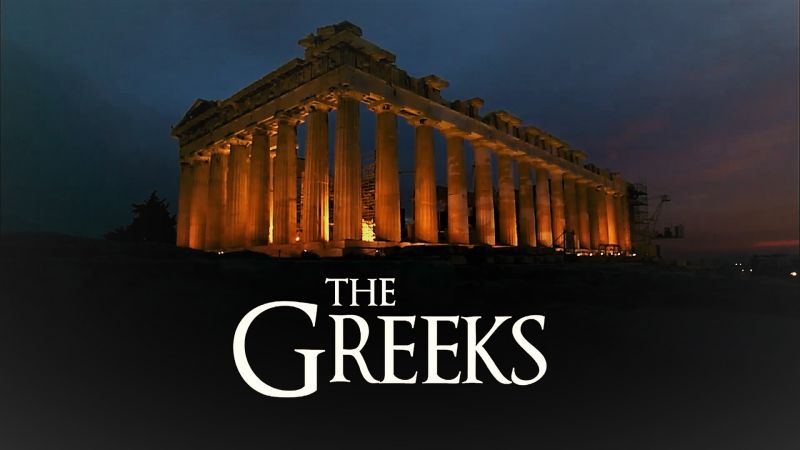The Greeks episode 3 – Chasing Greatness: They were an extraordinary people born of white rock and blue sea. They invented democracy, distilled logic and reason, wrote plays to plumb the deepest recesses of the soul, and captured the perfection of the human form in athletics and art. Quite simply, the Greeks created our world.
Today, of course, Greece conjures very different images: civic unrest, financial meltdowns, long ATM lines. But, as its ancient history attests, strife and discord are often incubators for greatness. Delve into groundbreaking new explorations of the ancient Greeks’ journey across time in this three-part series.
The Greeks episode 3 – Chasing Greatness
Ancient Greece was a civilization belonging to a period of Greek history from the Greek Dark Ages of the 12th–9th centuries BC to the end of antiquity (c. AD 600). Immediately following this period was the beginning of the Early Middle Ages and the Byzantine era. Roughly three centuries after the Late Bronze Age collapse of Mycenaean Greece, Greek urban poleis began to form in the 8th century BC, ushering in the Archaic period and colonization of the Mediterranean Basin.
This was followed by the period of Classical Greece, an era that began with the Greco-Persian Wars, lasting from the 5th to 4th centuries BC. Due to the conquests by Alexander the Great of Macedon, Hellenistic civilization flourished from Central Asia to the western end of the Mediterranean Sea. The Hellenistic period came to an end with the conquests and annexations of the eastern Mediterranean world by the Roman Republic, which established the Roman province of Macedonia in Roman Greece, and later the province of Achaea during the Roman Empire.
Classical Greek culture, especially philosophy, had a powerful influence on ancient Rome, which carried a version of it to many parts of the Mediterranean Basin and Europe. For this reason, Classical Greece is generally considered to be the seminal culture which provided the foundation of modern Western culture and is considered the cradle of Western civilization.
Ancient Greece
In the 8th century BC, Greece began to emerge from the Dark Ages which followed the fall of the Mycenaean civilization. Literacy had been lost and Mycenaean script forgotten, but the Greeks adopted the Phoenician alphabet, modifying it to create the Greek alphabet. Objects with Phoenician writing on them may have been available in Greece from the 9th century BC, but the earliest evidence of Greek writing comes from graffiti on Greek pottery from the mid-8th century. Greece was divided into many small self-governing communities, a pattern largely dictated by Greek geography: every island, valley and plain is cut off from its neighbors by the sea or mountain ranges.




